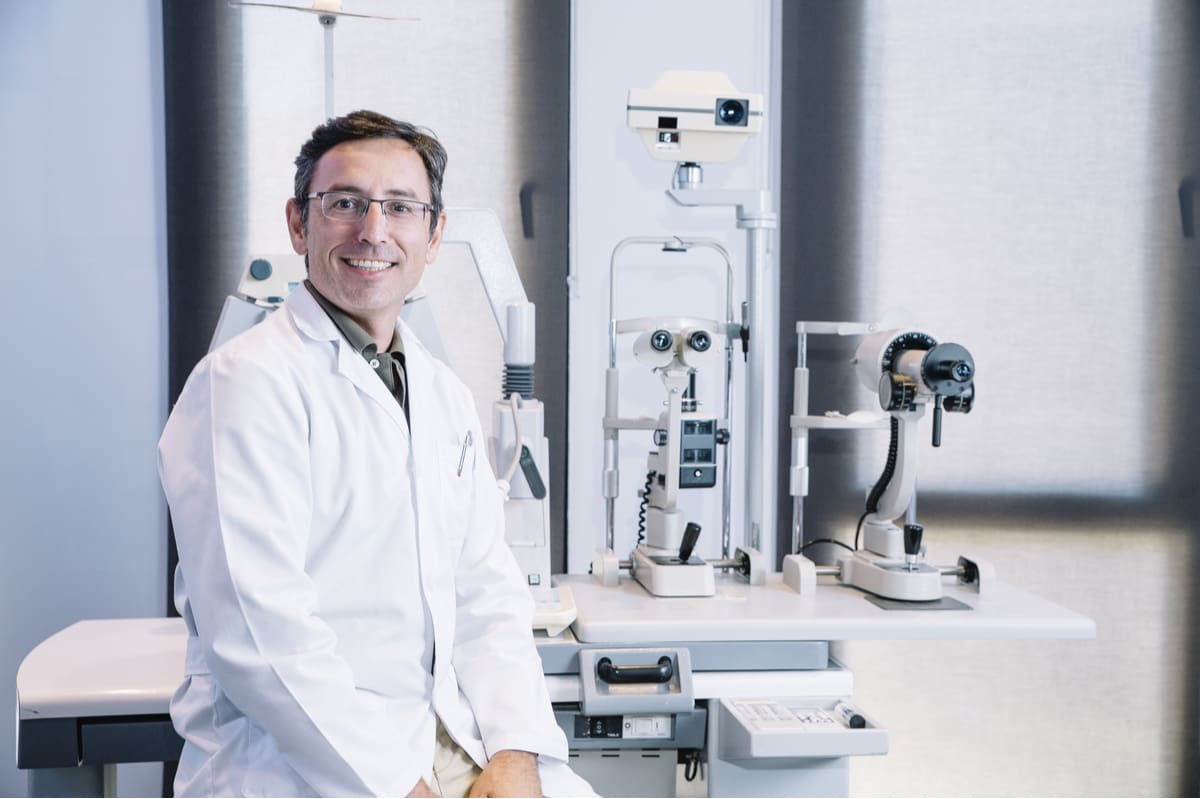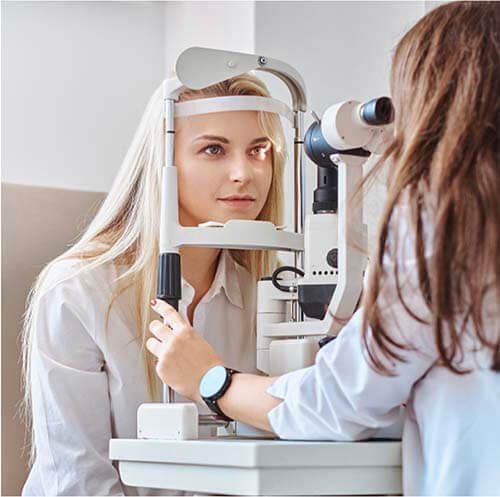Seasoned Optometrist for Comprehensive Eye Examinations
Seasoned Optometrist for Comprehensive Eye Examinations
Blog Article
The Value of Normal Eye Tests: Insights From an Experienced Ophthalmologist
Routine eye tests function as an essential component of health care that extends beyond plain vision correction. A skilled ophthalmologist can provide insights right into exactly how these examinations not only detect common eye conditions however likewise reveal underlying health and wellness concerns that might or else go undetected. The quiet progression of illness such as glaucoma and macular degeneration highlights the necessity of very early discovery. Comprehending the regularity and relevance of these analyses can inevitably influence one's long-term health and wellness trajectory, increasing the question of exactly how typically individuals must prioritize their eye health and wellness in the context of total wellness.
Benefits of Regular Eye Exams
Although several individuals might overlook the value of normal eye examinations, these assessments play a vital function in maintaining total wellness and health. Regular eye evaluations serve not only to examine vision however also to spot very early indicators of systemic wellness problems, including diabetes and hypertension. By identifying these problems at their beginning, people can get prompt treatments, substantially enhancing long-term outcomes.
In addition, eye tests can aid in keeping track of existing wellness problems, making sure that any kind of adjustments in vision or eye health and wellness are immediately attended to (optometrist). The evaluations allow for personalized suggestions relating to eyewear, way of life modifications, and protective measures versus potential eye pressure or damage
Beyond physical wellness, the advantages of normal eye examinations expand to enhancing quality of life. Eventually, prioritizing eye examinations promotes a positive method to health and wellness monitoring, encouraging individuals to take cost of their health.
Common Eye Conditions Detected
Normal eye exams contribute in spotting a selection of common eye conditions that can considerably affect vision and general health and wellness. Amongst the most common conditions recognized during these assessments are refractive mistakes, consisting of myopia (nearsightedness), hyperopia (farsightedness), and astigmatism. These conditions commonly materialize as blurred vision and can be easily corrected with prescription glasses or contact lenses.
In addition, cataracts, which cause clouding of the lens, are often identified in older adults. This problem can cause reduced vision and requires medical intervention for resolution. Another usual concern is glaucoma, a team of eye diseases that damage the optic nerve, frequently linked to increased intraocular pressure. Early detection is critical as it can protect against permanent vision loss.
Age-related macular degeneration (AMD) is another considerable problem that affects central vision, specifically in individuals over 50. Finally, diabetic retinopathy, a problem of diabetic issues, can lead to extreme vision impairment if not kept an eye on routinely. Via thorough eye tests, these conditions can be determined early, enabling for timely management and therapy to preserve vision and enhance lifestyle.
Importance of Early Discovery
Early detection of eye problems plays an important duty in preserving vision and stopping considerable health issues. Many eye conditions, such as glaucoma, diabetic retinopathy, and age-related macular deterioration, can advance silently without obvious symptoms in their onset. By the time symptoms materialize, irreversible damage may have happened, leading to permanent vision loss.
Regular eye examinations promote early medical diagnosis, enabling for timely treatment and therapy. For circumstances, dealing with raised intraocular stress can protect against the onset of glaucoma, while taking care of blood glucose degrees can dramatically minimize the threat of diabetic retinopathy. In addition, problems like cataracts can be efficiently handled with medical treatment when recognized early.

Just How Frequently Should You Go To?
Establishing the regularity of eye exams is important for preserving ideal eye health and wellness and vision. The basic referral for grownups is to have a thorough eye exam every one to two years, depending on individual danger aspects and age. For individuals matured 18 to 60, an examination every 2 years is commonly enough index if no vision problems exist. However, those over 60 ought to think about annual examinations, as the threat of age-related problems boosts significantly.
Individuals with particular danger elements, such as a household history of eye disease, diabetes mellitus, or existing vision problems, may call for even more regular evaluations. Youngsters must have their first eye test at 6 months of age, adhered to by extra exams at age 3 and before getting in institution. Regular exams during childhood years are important as vision can alter swiftly during developmental years.
Eventually, the frequency of brows through ought to be customized to every person's scenarios, including way of living, work hazards, and any type of pre-existing eye conditions. Consulting with an eye treatment professional can supply customized recommendations, making certain that your eye health and wellness is on a regular basis monitored and kept.
Tips for Your Eye Examination
Planning for your eye examination can enhance the efficiency of the go to and ensure a detailed examination of your eye health. To optimize your time with the eye web link physician, it is crucial to collect relevant information before your appointment. Beginning by putting together a checklist of any type of drugs you are presently taking, including non-prescription drugs and supplements, as these can impact eye health and wellness.
Furthermore, record any type of signs you have experienced, such as blurred vision, discomfort, or headaches. This information will assist your eye physician in detecting possible concerns.
It is additionally beneficial to have a family background of eye problems handy, as hereditary aspects can contribute to your eye health and wellness. Lastly, think about scheduling your examination for a while when you are less hurried, permitting you to ask inquiries and discuss your issues thoroughly. By preparing properly, you ensure that your eye exam is effective which your optometrist has all the required details to provide the very best treatment possible.

Conclusion
Routine eye tests play a crucial duty in maintaining both vision and general wellness. Inevitably, prioritizing extensive eye assessments contributes significantly to the conservation of vision and the renovation of high quality of life, highlighting the requirement of routine eye care in preventative healthcare techniques.
Routine eye exams are critical in finding a variety of usual eye problems that can significantly affect vision and general wellness.Establishing the frequency of eye exams is important for keeping optimal eye health and wellness and vision.Preparing for your eye examination can improve the efficiency of the go to and ensure a comprehensive analysis of your eye wellness (optometrist). By preparing sufficiently, you make certain that your eye test is productive and that your eye doctor has all the necessary information to supply the finest care possible
Ultimately, prioritizing comprehensive eye analyses contributes significantly to the conservation of vision and the enhancement of quality of life, underlining the requirement of routine eye care in preventive healthcare techniques.
Report this page